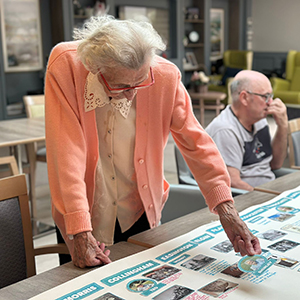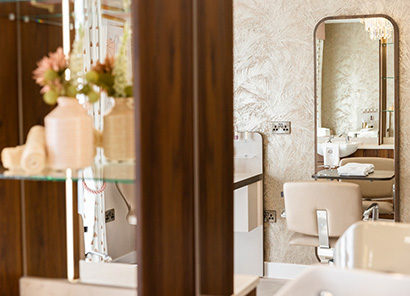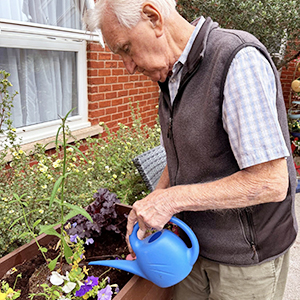Moving to a care home can be a great relief for many people and their families. One of the many benefits of living in a care home is that family members or other caregivers will be relieved of caring responsibilities leaving them free to spend quality time with their relatives. Handing over the care of a loved one to new people can be worrying. However, care staff are meticulous when getting to know people and their families. They will take time to discover their likes and preferences as they settle into their next chapter of life in a care home.
In our blog, we look at the types of care people can expect to receive when they move into a care home. Everyone will need different levels of help and support, a care plan will be created specifically tailored to your requirements. Personal care is anything done for you that is personal. This may include:

Services from professionals such as hairdressers, opticians, chiropractors and chiropodists will continue to be offered in your care home. Your Home Manager or Senior Carer will discuss your needs with you and your family on admission to the home. Anything that you require is included in your care plan which you can refer to at any time. Peoples' care plans are updated regularly to account for their changing needs. Country Court and all our homes ensure that communications between the homes and you and your loved ones are frequent.
Country Court has a long-standing arrangement with The Fane Clinic whose team of highly skilled practitioners visit our care and nursing homes regularly. During a visit, the practitioner will gather a brief medical history and assess your feet. The assessment consists of a detailed foot examination plus any special tests for vascular and neurological changes. Our residents get to know their podiatrists well. Treatment incorporates a detailed foot examination and thorough inspection of splits, cracks, blisters, fungal infections, verrucas and corns. Treatment includes nail cutting, filing and removal of any corns and callouses.
At Country Court, we understand the importance of protecting people's oral health. On admission, your care plan will include any requirements concerning oral healthcare. Our trained staff support residents’ daily oral healthcare and follow NICE oral health guidelines. Our staff will arrange for a visit to your dentist should it be required.
Most Country Court care homes have an on-site hair and beauty salon where a visiting hairdresser will be on hand each week to offer anything from a trim to a complete restyle. A visit to the hairdresser can make all the difference to a person’s wellbeing. Maintaining routines and making the most of dressing up for special occasions is something that staff in our homes encourage and support.

All Country Court Care & Nursing homes have good working relationships with their local GP practices. Each home is affiliated to at least one local GP practice where residents are encouraged to register as a patient unless they wish to continue under their existing GP practice. Our online care planning system, called Nourish, enables reports and critical information to be shared with GPs in a secure and timely manner. Data is stored on a secure cloud-based system enabling managers to access information using any laptop if required. Care plans, information about pressure ulcer management, infection prevention measures, accidents/incidents, health and safety and medication can be accessed remotely and shared with external health care professionals for example on admission to hospital. Reports on resident’s health and care help GPs assess whether changes to medication are required as people’s needs change.
If you’ve found it difficult to manage at home, a social worker may help you get extra care and support. They will arrange a care needs assessment and agree on a care and support plan. Your care plan may state that your needs will be best met in a residential care or nursing home. Your social worker will also help sort out funding and are the primary contact for requesting continuing care funding.
Moving to a care home can take the stress out of managing day to day life, staff will be on hand 24-hours a day to take care of you helping you to feel happy, healthy and content. To find out more about life in a Country Court care and nursing home contact your local care home.
